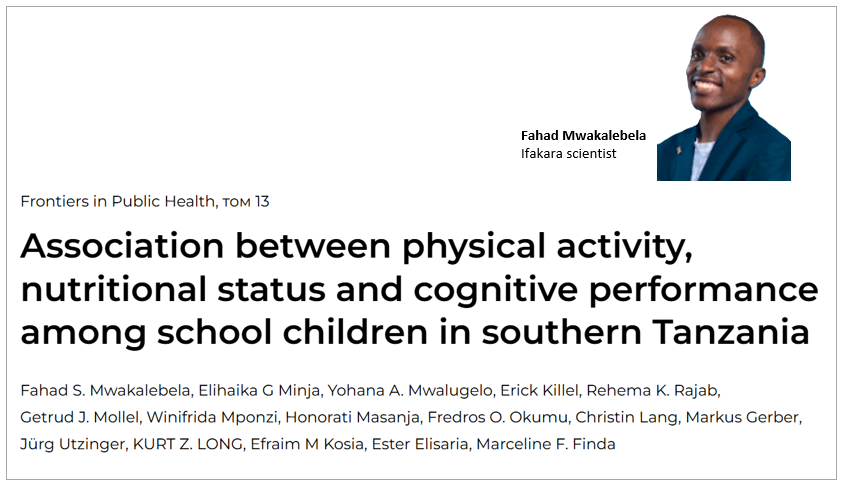
WELLBEING: Study links physical activity to healthy weight, but not brain function

A new study from southern Tanzania has found that most school-aged children in rural areas are physically active and maintain a healthy weight.
While physical activity was strongly linked to reduced obesity risk, researchers found no clear connection between being active and improved brain performance—suggesting that children's cognitive development may depend on a broader mix of influences.
92% of children are physically active
The study, published in Frontiers in Public Health, examined 678 children aged 6 to 13 years using data from the KaziAfya study, collected at four public primary schools within Ifakara Town Council in southern Tanzania.
It explored the links between physical activity, nutritional status, and cognitive performance, with results showing that over 92% of the children met the World Health Organization’s (WHO) daily recommendation of engaging in at least 60 minutes of moderate-to-vigorous physical activity (MVPA).
The KaziAfya project (2019–2021) was designed to evaluate the impact of school-based physical activity and multi-micronutrient supplementation (MMS) on the overall health and well-being of schoolchildren in Ifakara Town Council.
The study involved four schools from diverse socioeconomic backgrounds within the rapidly growing town, aiming to promote physical activity and provide MMS among students.
Measuring movement, weight, and brain skills
Using special devices worn on the body, researchers measured children’s physical activity over a week. They also assessed cognitive function using a test called the Flanker task, which evaluates attention and self-control. In addition, the children’s height and weight were measured to determine their nutritional status.
Obesity linked to low activity levels
Among the 678 children who participated in the study, 78% had a normal weight. However, 14% were underweight and nearly 8% were either overweight or obese. The researchers found that children who did not meet the daily activity recommendations were almost three times more likely to be obese compared to their more active peers.
No clear link to brain performance
Interestingly, the study found no strong link between how active a child was—or their weight—and how they performed on cognitive tests. This suggests that other factors, such as school environment, diet, or home life, may play a bigger role in influencing children’s thinking and learning abilities.
"Despite not finding a significant association between physical activity and higher-order cognitive abilities in our study, further research is essential to explore this relationship in more detail, especially in rural and low-income settings," remarked the scientists.
"Understanding the factors that impact children’s physical and cognitive development is crucial for designing effective interventions that promote overall health and wellbeing."
Study led by young Tanzanian scientist
The lead author of the study is Fahad Mwakalebela, an MSc student at The Nelson Mandela African Institution of Science and Technology (NM-AIST), conducting his research through Ifakara Health Institute. He was supervised by seasoned Ifakara researchers Ester Elisaria and Marceline Finda.
Other contributors from Ifakara include Elihaika Minja, Yohana Mwalugelo, Rehema Rajab, Getrud Mollel, Winifrida Mponzi, Honorati Masanja, and Fredros Okumu. Additional collaborators were Erick Killel and Efraim M. Kosia from NM-AIST, Christin Lang from the University of Basel, and Jürg Utzinger and Kurt Long from the Swiss Tropical and Public Health Institute (Swiss TPH).
Read the publication here.
